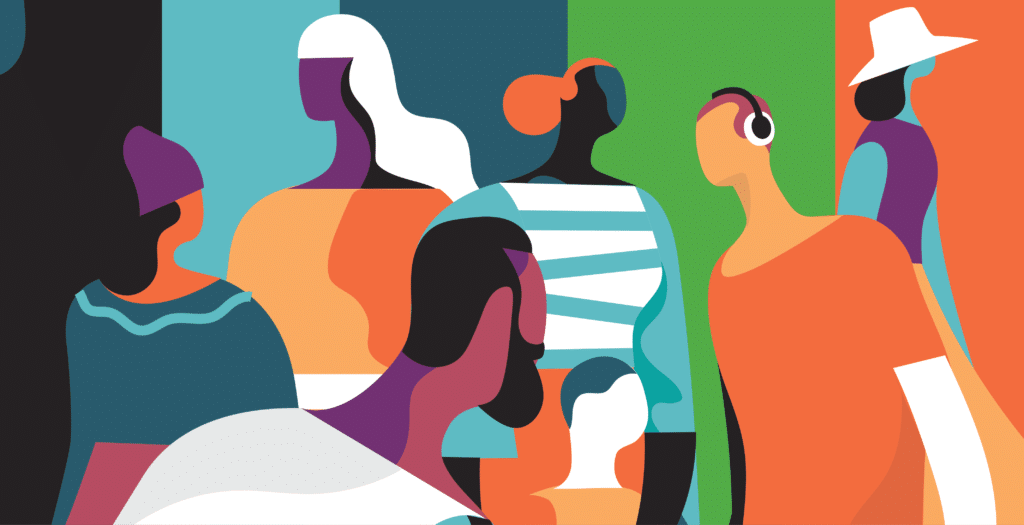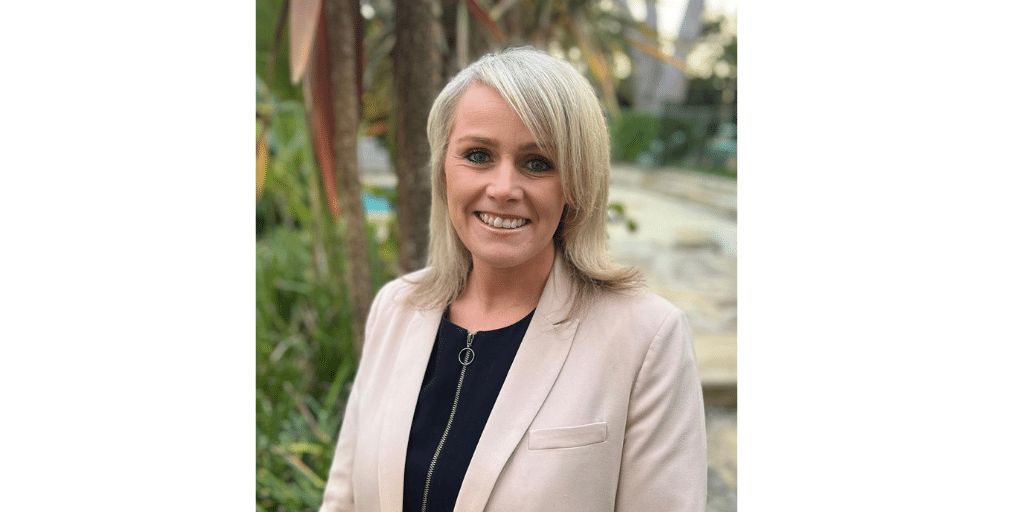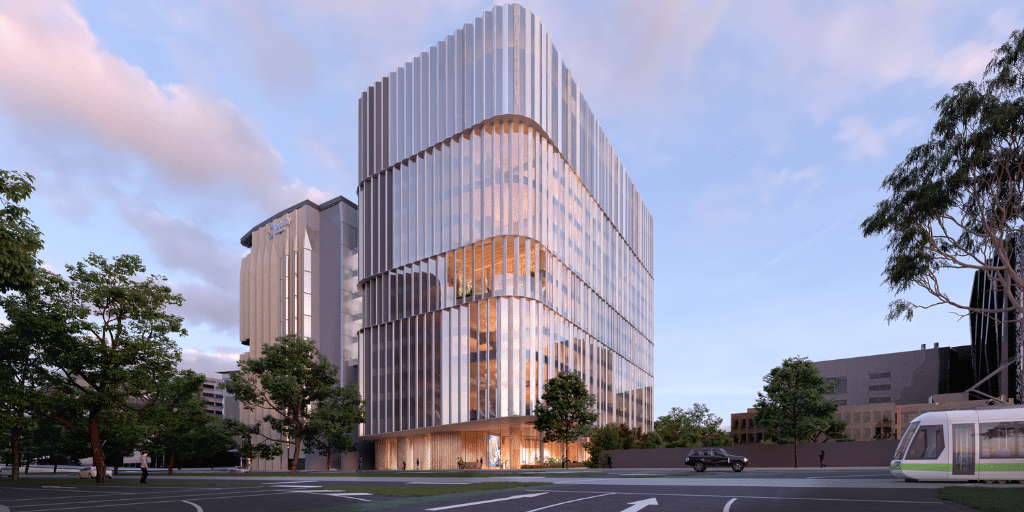Improving Diversity & Inclusion Through Social Procurement

Building social value into every project has been a key focus in Jacqueline Gava’s career. After a strong start in oil and gas, she’s now thriving as Commercial Director for the Australian Institute for Infectious Disease (AIID) and Fishermans Bend, University of Melbourne.
Creating real and sustained social value through procurement and project delivery is a real “missed opportunity” for too many procurement professionals, believes Jacqueline Gava.
Currently a Commercial Director at the University of Melbourne, Jacqui believes in the power of commercial decisions to make a real difference to important issues in the world. Although she doesn’t love the term itself, social procurement has been a driving force throughout her career.

“All purchasing decisions impact people, profits, and the environment. You have the ability to make this a positive impact. The more you understand and see this real impact, the more you will connect to a purpose and deeper value that procurement can create,” she points out.
“Most companies now seem to have progressed enough to understand that value doesn’t just mean price, however social procurement seems to be lagging on whether that is truly considered as part of value for money.”
This value equation that Jacqui always brings to her work was a key factor in her success implementing a diverse and inclusive tender process for the construction of the Australian Institute for Infectious Disease (AIID). She was recently recognised for her contribution to this project with The Faculty’s 2024 Award of Excellence for Diversity and Inclusion Project of the Year.
Creating Social Value in Design and Construction
Jacqui is grateful to have been involved with the AIID project from the very beginning.
AIID is a visionary initiative of the University of Melbourne, the Doherty Institute and Burnet Institute with backing from the Victorian Government as the major supporting partner. The AIID is a collaborative partnership which will be based in a new purpose-built facility designed to protect Australia and the region against infectious diseases and future pandemics.

Jacqui approached the tender process with the same starting point she always does: by taking a proactive stance and asking, “what’s the opportunity from a social perspective?”
“For me, it’s not about meeting organisational targets or ticking a box,” she explains. “People influencing procurement have an opportunity to think differently about what they’re asking for and make a meaningful impact through their decisions.”
Based on the specifics of the AIID project and its particular timing to the market, the project narrowed the two priority areas of the Design Team tender to greater gender balance in the team, and opportunities for Indigenous participation.
“Coming out of the pandemic, there was a disproportionate impact on women and minority groups, so that was front of mind for us,” she says.
She says she was “impressed” by the responses to the tender. Most companies were able to demonstrate their policies towards greater gender balance and reconciliation, however it was the firms who demonstrated their real commitment, actual progress and presented a gender-balanced team including Indigenous participation that stood out.
“We ended up with a design team with a minimum of 40% women including strong representation at the leadership level,” she says proudly.
On the flip side, the tender process was an interesting insight into how far behind some companies were.
“It generated good conversation with the evaluation team. We discussed the issue itself, the industry status, what market leaders were doing, and conversely how behind some firms appeared to be. For me, I believe keeping these subjects relevant and front of mind is an important factor,” she reflects.
Following the successful approach and outcomes with the AIID design team, the same principles were taken with the early works, resulting in further social outcomes including engagement with Indigenous businesses and a target of 5% of contract value to be directed to minority groups.
Building a Sustainable, Local Supply Chain in Oil and Gas
Jacqui laughs when she admits to being “one of those rare people” drawn to working in procurement and supply chain since she was a business student.
“I was always so fascinated by how something’s made, all the pieces to build it, where it’s come from and the people who have been involved along the way,” she says.
Starting out in the energy sector gave her a strong introduction to supply chains, quality control and best practice health and safety processes. Jacqui worked her way up the ranks at a global consulting and engineering firm, from Business Analyst to Buyer to Supply Chain Lead.
“Working on a contract in Papua New Guinea for a couple of years will forever be a highlight – the country, the people and opportunity to influence the supply chain process,” she reflects.
Her proactive and human-centric approach served her well in that role, taking her responsibilities to the next level and leaving a lasting effect on her.
“I needed to build a team and was passionate about having a local purchasing team,” she says. She thrived on the challenges of hiring and building a local team and supporting local businesses to become preferred and reliable suppliers, “working towards safe in-country fabrication capability”.
“It was a good eye-opener for me because at the time the industry had strict pre-qualification practices that can be a barrier to small businesses, so I dedicated time working with the team to develop and implement fit-for-purpose evaluations and a partnership approach with local businesses. I loved the messiness and opportunity navigating that.”
Choosing the Right People and Projects to Grow a Strong Career
In all the projects she’s worked on, working with great leaders has been a key theme for Jacqui. It’s a factor she’d urge anyone to prioritise when deciding next steps in their career.
She’s always made sure to connect to people she admires and “plant the seeds” of her interests in certain projects and teams to open doors to opportunities.
“It’s about picking the right company and working with the right leaders,” she says. Having shifted from Oil and Gas to Higher Education, Jacqui is living proof that it’s possible to dramatically shift industries within procurement – and thrive.
“There are so many opportunities for procurement and supply chain professionals,” she says. “The only way to learn is to give it a shot. I’m always nervous when asked to lead a project or portfolio that I have not done before, however I keep saying yes and in turn it keeps me learning, engaged and motivated.”
But her main advice to young professionals?
“Be someone who can get things done,” she says. “There are always difficult people, politics, and barriers, however if you can be reliable, professional, and can deliver in spite of the difficulties you will stand out.”
We’ve been conducting interviews with professionals from around the world, delving into their real-world experiences in Procurement and Supply Chain, and passing on their advice and thoughts on the future of the profession. Check out the instalments with Flora Samonte from the Australian Wine Industry and Naomi Oluwasanmi from the Construction Industry.